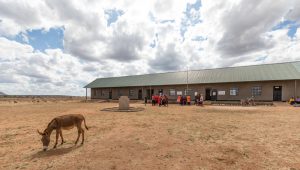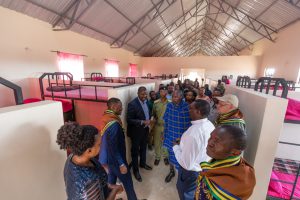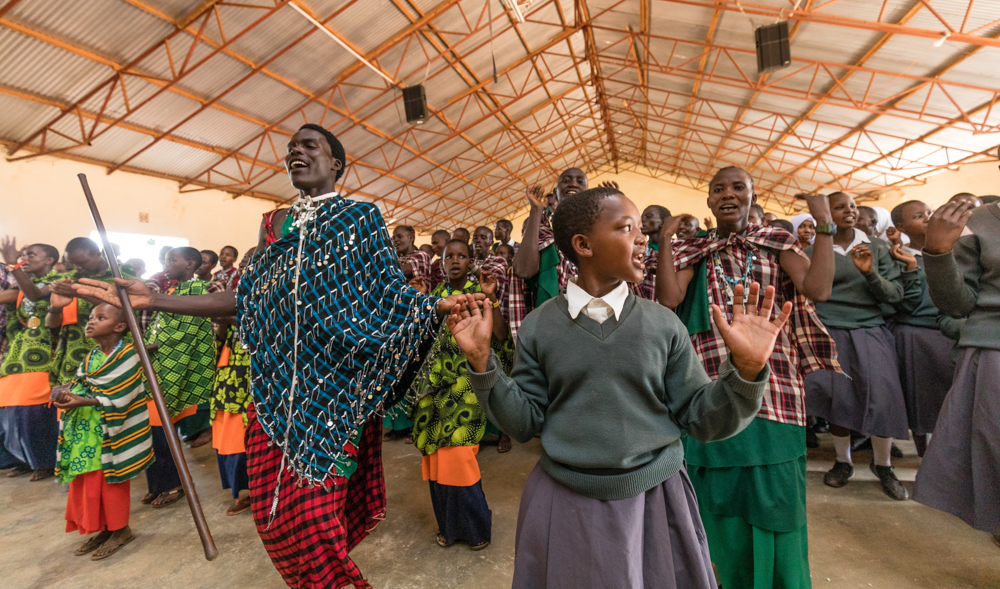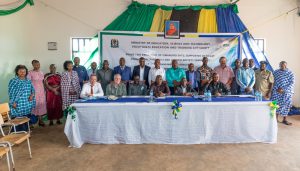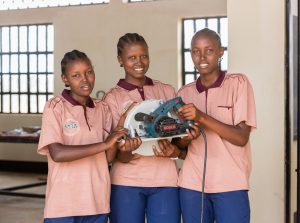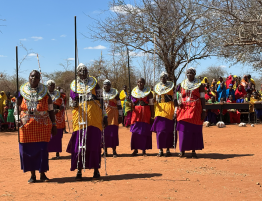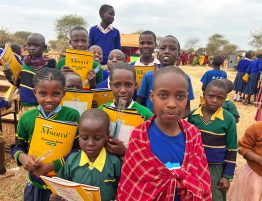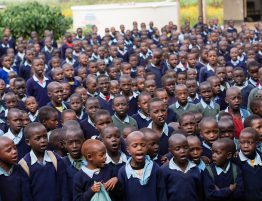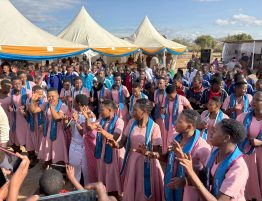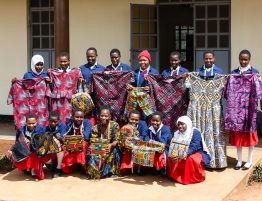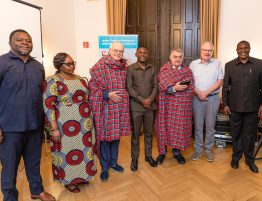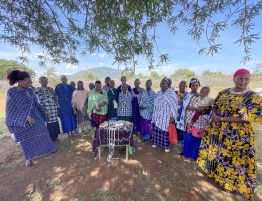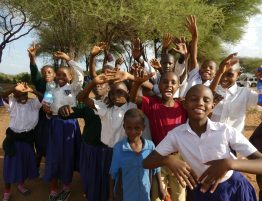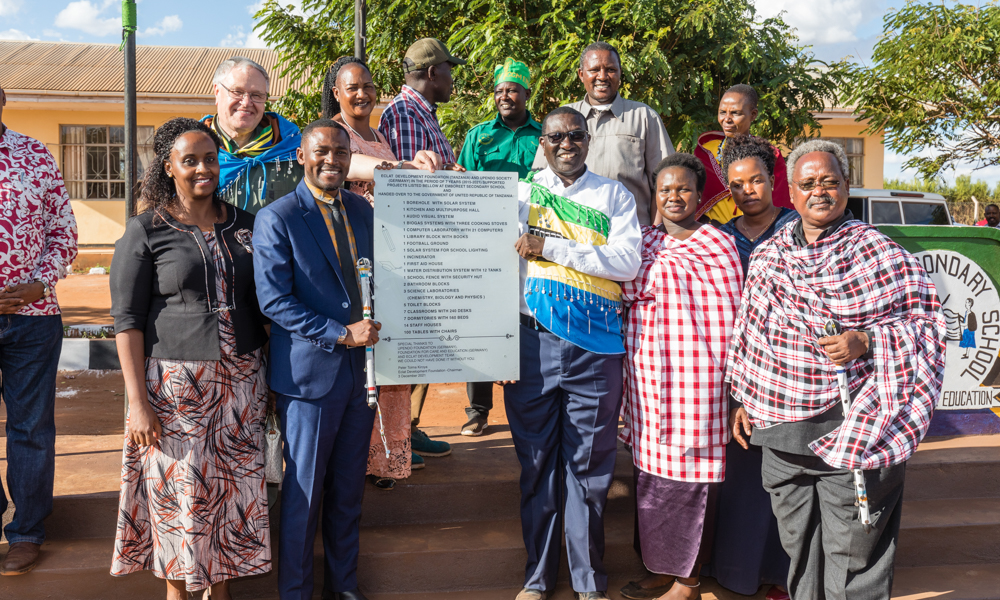
In 2021, we were once again able to implement all our projects in Tanzania as planned, despite the Corona pandemic. And after 1½ years we have been able to travel to Tanzania again to visit the old and new projects and to discuss them in detail on site. In this information letter, we report not only on the primary school projects, but also on two large-scale projects of several years’ duration: we were able to complete and hand over: the secondary school in Emboreet and the second expansion phase of the Vocational Training Center at the end of 2021.
Primary schools projects
In 2021 upendo was able to expand a total of eight primary schools thanks to the support of Fly&Help and Entrepreneurs for Knowledge: in Bembereza (Muleba District), Bonde la Faru (Karatu), Kampuni (Simanjiro), Lenaitunyo (Simanjiro), Mazinde (Simanjiro), Nado-ilchukin (Simanjiro), Nakweni (Simanjiro) and Olalaa (Ngorongoro). All projects have already been handed over to the Tanzanian government as the operator of the schools – except for the schools in Nado-ilchukin and Nakweni, which were only completed at the end of the year and are to be handed over in 2022. The school in Bembereza is run by the Tanzanian NGO KADETFU. It is important to us that the infrastructure that has been established, such as new or renovated classrooms and toilets, are used immediately for school operations.
Emboreet Secondary School
The secondary school in Emboreet was the first project of upendo. Thanks to the long-term support of the Foundation for Care and Education, we have been able to continuously expand and complete the school over the past eight years. It is the only secondary school in the district that now offers education leading up to the baccalaureate level. The number of pupils has meanwhile risen to over 650 children and young people. The school is comparatively well equipped with classrooms for science, a library, a computer centre, classrooms, dormitories, a large multi-purpose hall, residential buildings for teachers, a borehole with a solar-powered water pump, solar electricity, toilets and washrooms as well as a fence to protect against wild animals. This is one of the reasons why the teachers enjoy teaching at the school, and the final exams of the students meanwhile turned out well. Some of the former pupils are already studying at the country’s universities. But the government has also contributed to the expansion of the school by building more classrooms, toilets and the administration building with teachers’ rooms.
On 3 December 2021, the final handover ceremony took place at the school. The guest of honour was the District Commissioner Dr. Suleiman Serera. We experienced a lively (and long) celebration with numerous representatives from the local and district government, many residents of the surrounding villages and of course the students. In their songs, they thanked the school for the good facilities and the opportunity to go to school there. The two choirs from the surrounding villages also expressed their gratitude for the fact that the secondary school makes it possible for the children of their communities to receive a higher education, something that was unthinkable just a few years ago. At the end, the guests received gifts such as traditional Maasai cloths and jewellery. The enthusiasm of the students and residents was again overwhelming. We had the impression that they enjoyed the gift-giving more than the recipients.

The District Commissioner (left) and Toima with the commemorative plaque for the secondary school building
A word of thanks from Toima Kiroya, chairman of our partner organisation ECLAT, at the end of the project:
We thank you for your generous donation to our society. We are very happy about your support. Thanks to your donation, we were able to achieve our goal and improve educational opportunities in our backward society. You really make the difference for us and we are very grateful to you.
Vocational Training Centre
A few days earlier, on 26 November 2021, the second stage of the Vocational Training Centre was handed over to VETA, the state authority for the training of craftsmen, which also runs the centre. Thanks to the financial support of the German Federal Ministry for Economic Cooperation and Development and DER Touristik, locksmiths and carpenters are now also trained there alongside bricklayers, both boys and girls. ECLAT has been working intensively on the construction of the centre for the last 1¼ years. The two workshop halls are particularly impressive – they are also of central importance for vocational craft training in Tanzania and have been adequately expanded and equipped. The classrooms, the multi-purpose dining hall, the toilets and washing facilities and the dormitory also make a good impression. VETA is involved in the project through the construction of houses for the training staff and the dormitory for the girls; but these construction projects will only be finished in a couple of weeks later. The night before the opening, the centre was connected to the public power grid, so that heavy machinery can be put into operation, for which solar power is not sufficient.
The guest of honour at this event was Makongoro Nyerere, Regional Commissioner of Manyara and son of the state founder Julius Nyerere. Numerous VETA representatives from the district and the region took part, as well as from the headquarters in Dodoma and Dar es Salaam. They all, but especially the chairman of the VETA National Board, Peter Maduki, thanked ECLAT and upendo for the construction of the centre. VETA has also accepted our request to run this centre as a place for dual vocational training – especially for the youth from the district – although this is not in line with their own rules.
Up to now, young people who could not qualify for academic training at school have not had a chance to learn a trade in the district. Now, however, they can learn something instead of trying their luck in the big cities of the country or going back to their villages to herd cattle, sheep and goats like their ancestors and start families at a young age. Instead, they can settle in the district and contribute to the economic development of their homeland.
Photos: Rüdiger Fessel (2021)

